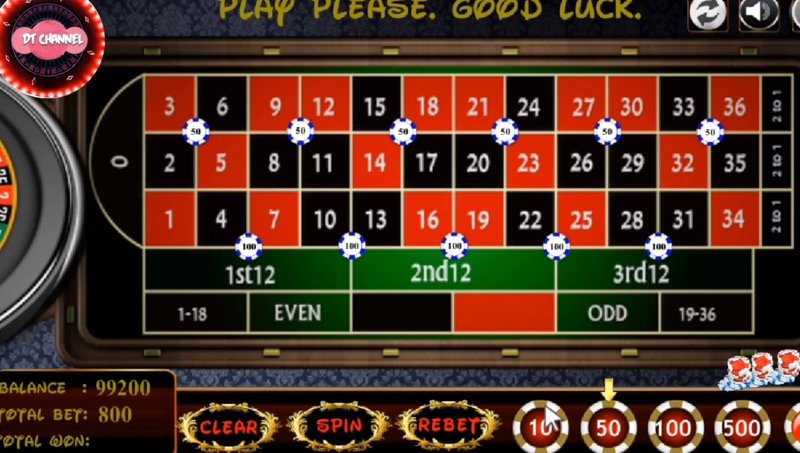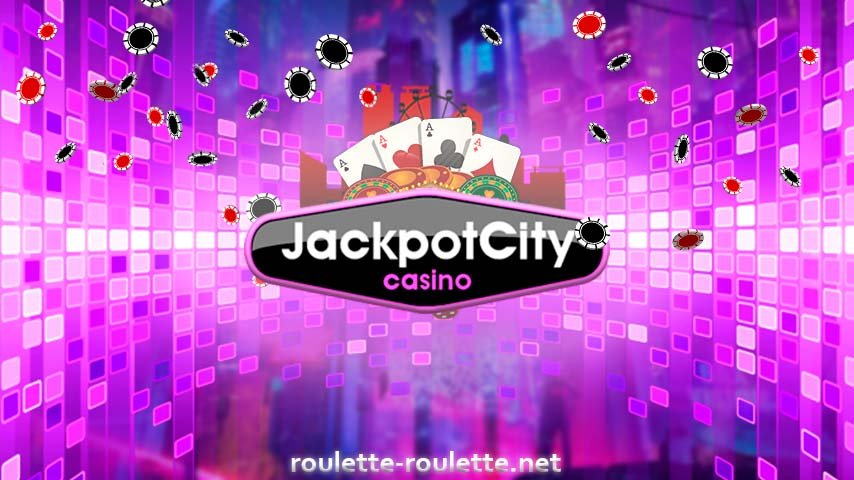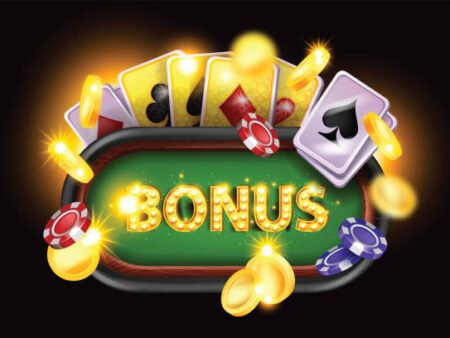What is Table Limit?
What is the Roulette Table Limit? Learn How to Predict Roulette Payouts
A roulette table limit is a limit set on a casino gambling table that determines the minimum and maximum bets that players can place during a game. These limits are set by the casino and are applicable to individual bets, meaning players can place bets within the specified range. For instance, a table might have a minimum bet requirement of $5, and a maximum limit of $500. These maximum and minimum table limits serve various purposes, including managing the casino’s risk exposure and ensuring a fair and balanced gaming environment.
Such limits are applied to each betting option, such as individual numbers, groups of numbers, or even-odd bets. The limits are in place to regulate the size of outside bets players can place, preventing excessively large or small bets that could disrupt the casino’s financial stability. Different roulette tables can apply high table limits or low table limits within the same casino, allowing players to choose a table that aligns with their preferred betting range.

Limit table is a key aspect of casino gambling that regulates the amount of bets allowed on a particular gaming table. This is an important concept that affects the gameplay and strategies of players. Each casino sets its own limits of roulette tables depending on the types of games and risk management objectives.
Table of content
- Why Is an Online Roulette Table Limit Applied?
- How do you choose the right table?
- How do Limits Influence the Roulette Payouts?
- The Significance of Roulette Table Odds
- Hash roulette table limit load factor
- What Online Casino Has the Most Optimal Roulette Table Limits?
- Understanding Regulation Die Table Size
- FAQs
The limit of the casino table varies and can vary significantly depending on the particular casino
Online casino limits of tables vary based on factors such as the specific game variant, the casino’s policies, and the platform’s overall risk management strategy. Here are some of the main types of limits that can be set on gaming tables:
1. Minimum Bet: This is the lowest amount a player can bet on a particular gaming table. The minimum bet can be different for different games and tables. This measure allows players with different bankrolls to find tables that match their financial capabilities.
2. Maximum Bet: This is the maximum amount a player can bet while playing on a table. The maximum bet can also vary from game to game and table to table. This maximum limit prevents betting too much and sets an upper limit for gameplay.
3. Maximum Limit of Betting: Some tables may have a limit on the maximum amount a player can bet on each type of bet. For example, roulette may have a maximum limit on the amount per single bet. This specific limit ensures balance and fairness of play.
4. Minimum Buy-In: This is the minimum amount a player must have in order to sit down at the table and start the game. This is typical for poker and blackjack. The Minimum Buy-In determines your participation in the game and your participation in the hands.
5. Maximum Buy-In: This is the maximum amount you can purchase in chips or money to join the game. Maximum Buy-In can vary from game to game and table to table, and it can affect your ability to influence gameplay.
These various Limits tables allow the casino to effectively manage the gameplay, ensuring fairness and control over betting. It is important to remember that knowing and considering these limits can affect your casino experience and your playing strategy.

Why Is an Online Roulette Table Limit Applied?
Online roulette limits serve multiple purposes. They help regulate the flow of bets, ensuring a balanced risk for the casino. Additionally, they prevent any single player from monopolizing the table or causing substantial financial fluctuations. This approach safeguards the online casino’s profitability and creates a fair and sustainable gaming environment for all participants.
Why do casinos have roulette table limits?
Casinos implement limits of tables to manage and control the amount players can wager on each bet, ensuring financial stability and mitigating the risk of significant losses. Below are three answers to the question: Why they are important and how their use contribute to an efficient casino:
1. Casino Protection: You’ve probably heard of cases where players have hit huge jackpots by betting large sums of money. Without betting limits, the casino would be at risk of huge financial losses. One of the most famous examples is the case of Archie Carayan, who won over $1.5 million dollars at Atlantic City Casino in 2011 by betting as little as $100. However, a cap on maximum bets would have limited the casino’s potential losses in this case.
2. Regulating player flow: Casinos strive to provide a comfortable gaming experience for their customers. With betting limits, they can control the number of players sitting at each table. This prevents tables from becoming overloaded, which can reduce the quality of service and create long waits, and conversely avoids too few players, which makes the game less interesting. Limitation also promotes fair and more balanced play.
3. Table variety: Betting limits allow casinos to offer a wide variety of tables with different limits. This is important to diversify the gaming preferences of players. For example, you can find tables with minimum bets starting at just a few dollars at the casino, which appeals to beginners and those with more modest bankrolls. On the other hand, high betting limits attract experienced players and those who are willing to risk large sums in the hope of big wins.
How do you choose the right table?
Choosing the right casino table is an important consideration that can affect your gambling experience and results. Below are key factors and tips on how to choose a table that fits your needs and strategy.
- Bankroll: Your budget is the first and foremost factor when choosing a table. If you have limited funds, choose tables with minimal stakes. This will help you extend your playing time and reduce the risk of losing money quickly. For example, if your bankroll is $100, a table with a minimum bet of $5 might be a good choice.
- Playing Strategy: Your playing style and strategy should also influence your table selection. If you are a beginner and want to learn how to play, choose tables with minimum bets so that you don’t risk too much money. Experienced players can choose tables with higher limits so that they have more opportunities to win. 3.
- Game type: Different tables offer different games. For example, you can find tables for blackjack, roulette, poker and other gambling activities in casinos. Make sure the table you choose offers the game you want to play.
- Maximum Limit for Roulette Bet: If you have a large bankroll and are willing to risk large amounts of money, pay attention to the maximum limit of a bet for the table. For example, tables with a maximum bet of $100 will suit those looking for higher stakes.
- Other players: Take a look at who else is sitting at the table. If you prefer to play in an atmosphere with similar players (such as beginners or pros), pay attention to the makeup of the players at the table.
- Casino Reputation: Research the casino’s reputation and reviews. Reliable casinos provide fair playing conditions and a fair roulette table limit.
Here is a sample table to help guide you when choosing a table:
| Bankroll | Playing strategy | Game type | Max bet limit | Other players | Casino reputation |
| Small | Beginner | Blackjack | 5 dollars | Optional | High |
| Medium | Mixed strategy | Roulette | $10 | Mixed | Medium |
| Large | Experienced player | Poker | 50 dollars | Professionals | Reliable |
Remember, choosing a table depends on your goals and comfort preferences. The right choice will help you enjoy gambling and manage your bankroll more effectively.
How do Limits Influence the Roulette Payouts?

Limits play a significant role in shaping roulette payouts. Maximum bet limits and overall table maximums impact the potential winnings by restricting the amount that can be wagered and won on a single spin. Additionally, minimum bet requirements influence the entry threshold for participating in specific bet types. The interplay of these limits directly shapes the dynamics of payouts in the game of roulette.
What is a roulette payout table?
It’s a common question, but payouts roulette peculiarities lie in the following. A roulette payout table outlines the potential winnings for various bets in the game. The main payouts in roulette are determined by the type of bet placed. Here are some key peculiarities of roulette payouts:
- Straight Up Bet (Single Number): Pays 35:1, meaning a successful bet wins 35 times the original wager.
- Split Bet (Two Numbers): Pays 17:1, providing a payout of 17 times the bet amount.
- Street (Three Numbers): Pays 11:1, offering an 11-fold return on the wager.
- Corner (Four Numbers): Pays 8:1, resulting in an 8 times payout.
- Six Line (Six Numbers): Pays 5:1, giving a 5 times return on the original bet.
- Dozen (1st 12, 2nd 12, 3rd 12): Pays 2:1, meaning a winning bet doubles the wager.
- Column (1st Column, 2nd Column, 3rd Column): Pays 2:1, providing a 2 times payout.
- Red/Black: Pays 1:1, equivalent to doubling the original bet for a correct prediction.
- Odd/Even: Pays 1:1, giving a 1 times return on the wager for a correct choice.
- High/Low (1-18/19-36): Pays 1:1, doubling the original bet for a correct selection.
Understanding these payout ratios is crucial for players to make informed betting decisions in roulette, as each bet type carries its own set of odds and potential returns.
Creating a roulette payout chart
Below is a simplified roulette payout chart, illustrating the common bets and their corresponding payouts in a standard European roulette wheel. They can include variations, and specific rules might apply depending on the casino or roulette version.
- Single Number (Straight Up): 35:1
- Two Numbers (Split): 17:1
- Three Numbers (Street): 11:1
- Four Numbers (Corner): 8:1
- Six Numbers (Six Line): 5:1
- Dozen (1st 12, 2nd 12, 3rd 12): 2:1
- Column (1st Column, 2nd Column, 3rd Column): 2:1
- Red/Black: 1:1
- Odd/Even: 1:1
- High/Low (1-18/19-36): 1:1
These payouts represent the ratio of the amount you win concerning your original bet. For instance, if you bet $10 on a single number and it hits, you would win $350 (35 times your original bet). Always check the specific rules and payouts at the roulette table you’re playing, as they may vary. You can see how it works in the comparison table for three different roulettes:
Roulette payout chart comparison table
| Roulette Bet 👑 | Payout 🥇 🥇 | French Roulette Odds 💙🤍❤️ | European Roulette Odds 💙💛 | American Roulette Odds ❤️🤍💙 |
| Single Number | 35:1 | 2.70% | 2.70% | 2.60% |
| Two Numbers | 17:1 | 5.41% | 5.41% | 5.26% |
| Three Numbers | 11:1 | 8.11% | 8.11% | 7.89% |
| Four Numbers | 8:1 | 10.81% | 10.81% | 10.53% |
| Five Numbers | 6:1 | N/A | N/A | 13.16% |
| Six Numbers | 5:1 | 16.22% | 16.22% | 15.79% |
| Column | 2:1 | 32.43% | 32.43% | 31.58% |
| Dozen | 2:1 | 32.43% | 32.43% | 31.58% |
| Red/Black | 1:1 | 48.65% | 48.65% | 47.37% |
| Even/Odd | 1:1 | 48.65% | 48.65% | 47.37% |
| Low/High | 1:1 | 48.65% | 48.65% | 47.37% |
Understanding the dynamics of roulette payouts involves a consideration of various factors, including the type of bet placed, limits of table, the chosen game variant, and the specific rules established by the casino. Each element contributes to the maximum payout potential in this classic game of chance. To determine the maximum payout for roulette:
- Bet Type: The type of bet placed influences the potential payout. Different bets carry varying odds and payout ratios.
- Table Limits: Each roulette table has specific minimum and maximum betting limits. The maximum payout is often capped based on these limits.
- Game Variant: Payouts depend on the specific roulette variant (e.g., American, European, French) and its rules, including the presence of features like ‘la partage.’
- Casino Rules: Payouts can vary between casinos, so understanding the specific rules of the casino you’re playing at is crucial.
Payout in roulette depends on the type of bet, table limits, game variant, and casino rules. Unraveling the intricacies of roulette payouts requires a comprehensive grasp of bet types, limits of tables, game variants, and casino rules. By navigating these elements wisely, players can optimize their chances of securing the maximum payout, making informed decisions, and enhancing their overall roulette experience.
The Significance of Roulette Table Odds

Comprehending roulette odds and payouts is pivotal for players before engaging in roulette games. These factors play a crucial role in assessing potential profits and are contingent on the specific bet type and the chosen numbers on the roulette single zero wheel and more.
What do roulette odds mean for successful roulette betting?
Roulette odds represent the likelihood of success or failure in a roulette wager, determined through a comparison of favorable outcomes to the overall potential results. Take European roulette, for instance. A betting system on a single number yields odds of 36 to 1, given that there are 37 numbers on the wheel, with only one leading to victory. Should fortune favor you, the corresponding payout stands at 35 to 1, translating to 35 times your initial bet in addition to the original amount staked.
Understanding roulette odds is pivotal for effective betting strategies, guiding decisions based on financial constraints and risk thresholds. In general, the correlation between odds and payouts adheres to an inverse relationship: higher odds correspond to lower payouts, and vice versa. To illustrate, consider a bet split on red or black in European roulette, offering nearly a 50% chance of success due to the 18 red and 18 black numbers on the wheel.
The payout for such a bet is set at 1 to 1, ensuring you recoup your initial bet along with the wagered amount in case of triumph. Several instances of successful roulette betting, leveraging the intricacies of roulette odds, include the following:
- Longevity on a budget: If you’re working with a modest budget and aiming for an extended gaming experience, opt for bets characterized by low odds and substantial payouts. Examples include wagering on single numbers, two numbers, or three numbers. While the likelihood of winning is comparatively low, hitting the jackpot on these bets can yield a significant windfall if luck is on your side.
- Maximizing wins with a sizeable budget: For those with a more substantial budget looking to enhance their chances of success, focus on bets featuring high odds and modest payouts. Consider options like betting on red or black, odd or even numbers, or high or low ranges. While the probability of winning is higher, the payouts are relatively smaller.
- Balancing risk and reward: Achieve a balance between risk and reward by selecting bets with moderate odds and payouts. This strategy involves options such as columns, dozens, or betting on four numbers. While these bets offer a moderate chance of success, they can still result in a respectable payout.
- Exploring complexity and excitement: For a more intricate and exhilarating betting experience, delve into options with variable odds and payouts, such as called bets. These wagers are influenced by the arrangement of numbers on the wheel, covering various numbers and combinations. Examples of called bets include “voisins du zero,” “tiers du cylindre,” and “orphelins.” Each introduces an element of complexity and excitement to your roulette strategy.
To sum up, roulette odds represent the likelihood of winning or losing a bet in the game of roulette, playing a crucial role in achieving success in roulette betting. Various roulette variants come with distinct odds, payout structures, and table limits, necessitating thoughtful consideration from players who must align their choices with both their budget and risk tolerance.
Additionally, players have the flexibility to employ diverse betting strategies, including the use of called bets, as a means to heighten their probability of winning or inject more enjoyment and excitement into the game.
How to play roulette setting the optimal limits to get maximum payout on roulette?

To optimize your chances of obtaining the maximum payout in roulette, consider setting your maximum table limits strategically. Here’s a guide on how to play roulette while maximizing your potential payout:
- Understand the Game: Familiarize yourself with the rules and variations of roulette. Different versions may have varying odds and payouts, so choose the one that aligns with your goals.
- Define Your Budget: Set a clear budget for your roulette session. Determine the amount you’re comfortable risking and are willing to play with, ensuring it won’t adversely affect your overall financial situation.
- Choose Bets Wisely: Tailor your bets to strike a balance between risk and reward. Mix high-payout, low-probability bets with more conservative options. This approach can enhance the excitement while maintaining the potential for significant payouts.
- Optimal Betting Strategy: Develop a betting strategy that suits your playing style. This could involve a combination of inside bets (single numbers, splits, corners) and outside bets (red/black, odd/even) to diversify your approach and optimize your chances.
- Set Winning and Losing Limits: Determine the point at which you’ll walk away with your winnings. Similarly, establish a loss limit to prevent significant financial setbacks. Having clear boundaries helps you maintain control and make rational decisions during the game.
- Consider Progressive Betting: Explore progressive betting systems cautiously. While they can amplify potential payouts, they also involve increased risk. Examples include the Martingale or Fibonacci systems, where bets are adjusted based on previous outcomes.
- Explore Called Bets: Experiment with called bets for a more intricate strategy. These bets are based on specific sections of the wheel and can introduce an additional layer of complexity to your gameplay.
- Stay Informed on Table Limits: Be aware of the minimum or maximum table limits, ensuring they align with your budget and preferred betting strategy. Different tables may have varying minimum and maximum bet amounts.
- Manage Emotions: Stay composed and avoid chasing losses. Emotional decisions can lead to impulsive bets, jeopardizing your overall strategy and potential payouts.
- Practice Responsible Gambling: Always gamble responsibly. Remember that roulette is a game of chance, and there’s no foolproof strategy to guarantee consistent wins. Enjoy the game for its entertainment value, and view potential payouts as a thrilling bonus rather than a guaranteed outcome.
Achieving the maximum payout in roulette involves a strategic approach that includes understanding the game, setting a sensible budget, choosing bets wisely, and employing a balanced betting strategy. Establishing clear winning and losing limits, considering progressive betting cautiously, exploring called bets, and staying informed on table limits are key elements
Hash Roulette Table Limit Load Factor

The “hash table load factor” is a crucial concept in data structures and computer science. It represents the ratio of the number of elements currently stored in a hash table to the total number of slots or buckets available in that table. In other words, it quantifies how full or empty a hash table is. A load factor of 1 indicates that the table is fully utilized, while a load factor of 0.5 means it’s only halfway filled. Maintaining an appropriate load factor is essential for efficient hash table performance. Here’s a list of key points related to the hash table load factor:
- Definition: The hash table load factor is defined as the ratio of the number of elements (entries) stored in the table to the total number of slots or buckets in the table.
- Importance: It helps in assessing the efficiency of hash tables. A high load factor can lead to increased collisions and performance degradation, while a low load factor may indicate wasted memory.
- Optimal Load Factor: Typically, hash tables aim for a load factor below a certain threshold, often around 0.7, to ensure efficient operations.
- Resizing: When the load factor exceeds a predefined threshold, the hash table may need to be resized (increased in size) to maintain efficiency.
- Collision Resolution: Load factors influence the likelihood of collisions (when two elements map to the same slot). Lower load factors reduce collisions.
- Balancing Act: Achieving the right balance between memory usage and performance is essential when setting the load factor threshold.
- Dynamic Data Structures: Hash tables with dynamic resizing strategies adjust their size as needed to maintain an optimal load factor.
- Load Factor Formula: The load factor is calculated as (number of elements / number of slots).
- Applications: Hash tables with proper load factor management are widely used in database indexing, caching, and various data retrieval operations.
- Trade-offs: Maintaining a lower load factor requires more memory, while a higher load factor may lead to slower table operations due to increased collisions.
Understanding and managing the hash table load factor is crucial for designing efficient data structures and algorithms, ensuring that hash tables perform optimally in various applications.
What Online Casino Has the Most Optimal Roulette Table Limits?

Roulette limits of tables are the minimum and maximum bets that a player can make on each spin of the roulette wheel. Different online casinos have different table limits, depending on their software, game variety, and target market. Here is a brief overview of the roulette table limit strategies of some of the most popular online casinos, including those in Las Vegas.
Casinos where roulette games are played often
Want to play roulette wisely? Then, you must go to Las Vegas! It’s just a joke, as there are many online gambling platforms, which are already popular in Canada, New Zealand, Mexico, Brazil, or European countries. Players chose a roulette type or any other game more traditional and popular in their area:
Spin Casino: This Canadian online casino offers a range of roulette games, including European, American, French, and Multi Wheel Roulette. Its limits vary from $0.25 to $5,000 per spin, depending on the game and the stake level. The payouts are standard, with 35 to 1 for a single number and 1 to 1 for even money bets. The playing strategy is to choose the game with the lowest house edge, which is usually European or French Roulette, and to avoid the risky bets like single numbers or five-number bets.

Jackpot City Casino: Another popular Canadian online casino, having over 300 Microgaming slots and a variety of table games, including roulette. The limits for roulette table range from $0.10 to $2,000 per spin, depending on the game and the stake level. The roulette payouts are also standard, with 35 to 1 for a single number and 1 to 1 for even money bets. The playing strategy is similar to Spin Casino, with the preference for European or French Roulette and the avoidance of high-risk bets.

Las Vegas Online Casino (WOW Vegas): This is a social casino that accepts players from Las Vegas and other cities and countries and offers over 300 slot games and a range of sweeps games, including roulette. The limits for roulette tables are 1 to 100 WOW Coins per spin, which can be converted to real money through sweepstakes. The payouts are also standard, with 35 to 1 for a single number and 1 to 1 for even money bets. The playing strategy is to use the free WOW Coins to play and win more coins that can be redeemed for cash prizes.

Pulsz Casino: This is another social casino that is very popular in Las Vegas and accepts players from around the world offering a range of sweeps games, including roulette. The limits for roulette are 1 to 100 Gold Coins per spin, which can also be converted to real money through sweepstakes. The payouts are also standard, with 35 to 1 for a single number and 1 to 1 for even money bets. The playing strategy is to use the daily bonuses, rewards, and promos to get more coins and entries to the sweepstakes.

Here is a comparison table with the minimum and maximum limit of betting for each casino popular in Las Vegas, other cities and countries, Canada, New Zealand, Mexico, and so on. It describes the playing strategy for each casino for roulette games:
Roulette limits comparison table:
| Online Casino | Game Type | Minimum Bet Limit | Maximum Bet Limit | Payouts | Playing Strategy |
| Spin Casino | Roulette | $0.25 | $5,000 | Standard | Choose European or French Roulette, avoid high-risk bets |
| Jackpot City Casino | Roulette | $0.10 | $2,000 | Standard | Choose European or French Roulette, avoid high-risk bets |
| Las Vegas WOW Vegas Casino | Roulette | 1 WOW Coin | 100 WOW Coins | Standard | Use free WOW Coins to play and win more coins |
| Pulsz Casino | Roulette | 1 Gold Coin | 100 Gold Coins | Standard | Use daily bonuses, rewards, and promos to get more coins |
Varying roulette table limits are observed across online casinos, influenced by factors such as software, game selection, and target audience. Notably, platforms like Spin Casino and Jackpot City Casino boast higher limits of tables compared to casinos in Las Vegas, like, for example, WOW Vegas and Pulsz. However, the Canadian counterparts often contend with higher house edges, primarily due to the presence of the American roulette wheel in their offerings.
When adopting a roulette playing strategy, players are advised to opt for games with a lower house edge, typically found in European or French roulette variants. Steering clear of high-risk bets, such as single numbers or five-number bets, enhances the likelihood of favorable outcomes. Players can leverage the free coins, bonuses, rewards, and promotions provided by social casinos to augment their winning prospects, especially when participating in sweepstakes for cash prizes.
Limits of table in the popular roulette games of online casinos



Roulette, a widely enjoyed casino game, revolves around spinning a wheel and predicting the outcome of each spin through strategic betting. Diverse variations of roulette exist, each with its unique rules, odds, and payout structures. This response delves into a comparative analysis of four prominent roulette types: European, American, French, and Multi Wheel Roulette. Our examination will employ the following criteria for comparison:
- House Edge: The casino’s anticipated long-term win percentage from each bet
- Payout %: The player’s expected long-term win percentage from each bet
- Limits of Tables: The minimum and maximum bet amounts allowed per spin
- Maximum Bet Limit: The highest permissible wager on a single number or combination
- Minimum Bet Limit: The lowest allowable bet on a single number or combination
- RTP %: The Return to Player percentage, inversely related to the house edge
- Free Spins: The number of spins a player can engage in without placing a bet, commonly offered as a bonus feature
Comparison table for each type of roulette game:
| Type of Roulette | House Edge | Payout % | Table Limits | Maximum Bet Limit | Minimum Bet Limit | RTP % |
| European | 2.70% | 97.30% | $1 – $100,000 | $120 | $11 | 97.30% |
| American | 5.26% | 94.74% | $1 – $100 | $120 | $11 | 94.74% |
| French | 1.35% | 98.65% | $1 – $100,000 | $120 | $11 | 98.65% |
| Multi Wheel | 2.70% | 97.30% | $0.1 – $5000 | $120 | $7 | 97.30% |
As you can see from the table, the main difference between the types of roulette games is the number of zeros on the roulette wheel. European and French roulette have one zero, while American roulette has two zeros. This affects the house edge and the payout percentage, as well as the odds of winning each bet.
French roulette also has two special rules, called La Partage and En Prison, that reduce the house edge to 1.35% on even money bets. Multi Wheel roulette is a variation of European roulette that allows the player to bet on up to eight units of the roulette wheel at the same time, increasing the chances of winning but also the total bet amount.
Based on the comparison, we can conclude that French roulette is the most favorable type of roulette game for the player, as it has the lowest house edge and the highest payout percentage. European roulette is also a good choice, as it has the same rules as French roulette, except for the La Partage and En Prison rules.
American roulette is the least favorable type of roulette game, as it has the highest house edge and the lowest payout percentage. It’s more popular in Las Vegas and other similar regions. Multi Wheel roulette is a fun and exciting variation of European roulette, but it also requires a higher budget and a higher risk tolerance.
Understanding Regulation Die Table Size
The “regulation die table size” is a term associated with certain games, especially board games that involve dice. It refers to the standardized or regulated dimensions of a table or surface on which these games are played. Having a regulation die table size is essential to ensure fair play and consistent gameplay experiences across different settings. Deviating from the specified dimensions could impact the dynamics of the game, potentially providing advantages or disadvantages to players.
Frequently asked questions (FAQ) about a roulette table limit:
What is the roulette table limit?
Casino limits are roulette rules set at tables that determine the minimum and maximum amounts players can bet.
Why do casinos have limits?
Casinos have limits to manage risk, regulate player flow, and offer table variety.
How do limits protect the casino?
Table limits protect the casino by preventing players from placing excessively large bets, reducing potential losses.
What is the purpose of regulating player flow with limits?
Regulating player flow ensures a comfortable gaming atmosphere and prevents overcrowding at tables.
How does a roulette table limit affect my chances of success?
Limits can impact your betting size, which, in turn, affects potential wins and losses.
Which casino games typically have the highest limits?
Some games, such as poker and certain types of baccarat, often have the highest roulette table limits.
Do casinos offer tables with a variety of limits?
Many casinos, both online and offline, provide tables with different limits to cater to various player preferences.
Can I play without limits at a casino?
No, limits are always present at casinos to ensure safety and control over bets.
How can I find out the limits on a specific table?
You can usually find the limits displayed on the table itself or on the casino’s website. Casino staff can also provide this information.
What factors should I consider when choosing a table to play at?
When selecting a table, it’s essential to consider your bankroll and playing style to make an optimal choice for a successful gaming experience.
Are there restrictions on the minimum and maximum bets I can place?
Yes, casinos set limits on both the minimum and maximum bets you can place to maintain control over the game.
How do I ensure I’m playing within the limits of tables?
To ensure you’re within the limits, check the posted limits at the table and verify your bets against them.
Can I request to raise or lower the table limits?
Limits are typically set by the casino and can only be adjusted by casino staff.
Are the limits of tables different for online casinos?
Yes, the limits of casino tables can vary between online and offline casinos, so it’s essential to check the specific limits at the casino you’re playing at.
Do high table limits always result in larger wins?
Not necessarily. While higher limits allow for larger bets, they also entail higher risks.
What should I do if I have questions about limits?
If you have questions about limits, don’t hesitate to ask the casino staff or customer support for clarification.
Can I change tables to find more suitable limits?
Yes, you can often switch tables to find limits that better match your preferences and bankroll.
Do different casino games have distinct table limits?
Yes, different games within a casino can have varying limits to accommodate different playing styles.
Are there any regulations governing limits in casino tables?
Casino limits of table are typically determined by the casino itself and must comply with local gambling regulations.
How do limits impact the overall gaming experience?
The limits help create a balanced and enjoyable gaming atmosphere by ensuring fair play and accommodating various player budgets and strategies.
So, Roulette table Limits are not just numbers on the gaming table, they are a tool that balances the interests of both the casino and the players, making gambling more protected, regulated and diverse.
Sources:
Wikipedia
American roulette Blackjack Casino casino in Monte Carlo Fibonacci Gamble Gambling how many numbers in roulette Martingale number roulette wheel Online Casino online roulette free online roulette play play roulette online popularity of roulette random roulette rolett game ROULETTE roulette bet roulette casino game roulette game roulette odds chart roulette probability calculator roulette strategy roulette table rules roulette win Rules of Roulette rules of roulette Split Street

![Random Number Generator [1 to 6]](https://roulette-roulette.net/wp-content/uploads/2023/12/PHOTO-2023-12-20-18-40-14-2-450x338.jpg)







![Random Number Generator [1 to 6]](https://roulette-roulette.net/wp-content/uploads/2023/12/PHOTO-2023-12-20-18-40-14-2-100x100.jpg)





Thanks for the interesting information! I stumbled upon this article while searching for information on casino table limits, and I must say, it’s been an enlightening read. The article does an excellent job of breaking down what table limits are and how they function in the world of casinos. I appreciate the clear explanation of minimum and maximum bet limits, as well as the insight into maximum limits for specific bet types like roulette.
The section on why table limits are essential for both players and casinos was particularly informative. It highlighted the delicate balance between offering an enjoyable gaming experience for players while safeguarding the casino’s financial stability. Understanding this aspect has given me a new perspective on how casinos operate.
I also found the guidance on choosing the right table based on my bankroll and gaming strategy to be immensely helpful. It’s reassuring to know that there are suitable options for players with varying budgets. The inclusion of FAQs addressed many of my initial questions and provided additional clarity on the subject.
However, I did notice a couple of irrelevant keywords in the review: ‘who owns table table’ and ‘why tables are important.’ These phrases don’t seem to relate to the topic of casino table limits, and they may have been included by mistake.
Overall, this article has enhanced my understanding of table limits and how they impact the casino experience. I’d recommend it to anyone seeking comprehensive information on this crucial aspect of casino gaming.”
I hope you find this review useful. If you have any further requests or questions, please feel free to ask!
Hello Joe,
We really appreciate your enthusiastic review of our article
Uncovering the nuances of limit tables, including “limit tables” and “limit table” is truly like deciphering the intriguing world of casino betting. We’re glad you found the information presented in this article valuable and thought-provoking.
Your keen interest is an incentive for us to write more interesting articles on the topic of gambling
As for the unusual phrases such as “who owns the table” and “why tables are important”, we understand your bewilderment. These were unintentional inclusions in the article, and we apologize for the confusion caused. We will promptly correct these oversights to maintain the credibility of the article.
We are glad you delved deeper into reading our article.
Thank you for considering our article as a valuable resource for understanding table limits. Your feedback helps us continue to provide informative content that will enrich your casino journey.
If you have additional questions, feedback, or specific topics you would like to see covered in the future, please feel free to contact us. We are here to make your casino experience even more enjoyable.
Best regards, Harry Keroux
I found this article about “Table Limits” quite informative and engaging. It delves into the concept of table limits in the world of casinos, shedding light on their significance and various types. The article initially explains what table limits are, which is particularly helpful for beginners. It goes on to describe the different kinds of table limits, including minimum and maximum bets, which I found essential for understanding how to manage my bets when playing casino games.
The section that impressed me the most was the one detailing why table limits are crucial for casinos. It highlights the role of table limits in safeguarding casinos from colossal losses and ensuring a balanced gaming atmosphere. The fact that casinos adjust these limits based on the game type and their risk management strategies was intriguing.
I also appreciated the part that discusses how to choose the right table, depending on your bankroll and gaming strategy. It offered practical advice for both novices and experienced players, allowing them to make informed decisions.
Furthermore, the article includes a list of frequently asked questions, which I found quite helpful. These questions cover various aspects of table limits, such as their purpose and how to select the right table. It’s a handy resource for anyone seeking quick answers to common queries related to table limits.
Lastly, I noticed a reference to the importance of tables in the context of “who owns table table” and “why tables are important.” While it piqued my curiosity, I wished there was more information on these topics.
Overall, this article provides a comprehensive overview of table limits in the world of casinos. It offers valuable insights for both beginners and seasoned players, making it a worthwhile read.
Dear Mark,
Thank you for taking the time to read our article on table limits and for your thoughtful questions. I’m delighted to provide you with detailed answers to your inquiries.
1. What Exactly Are Table Limits?
Table limits, Mark, refer to the range of betting amounts that are permitted at a casino table game, such as roulette, blackjack, or poker. These limits serve two primary purposes: protecting the casino from excessive losses and ensuring fair and enjoyable gaming conditions for players.
2. How Do Different Types of Table Limits Affect My Casino Experience?
The various types of table limits significantly impact your casino experience. Minimum and maximum bet limits, for instance, determine the range within which you can place bets. A table with higher maximum limits might be suitable for high rollers seeking larger winnings, while tables with lower limits are more accommodating for those with smaller bankrolls. The maximum limit for specific bet types, such as single bets in roulette, can affect your betting strategy.
3. Why Are Table Limits Important for Casinos?
Table limits are crucial for casinos because they help manage risk and prevent substantial financial losses. Without these limits, players could potentially place massive bets and, if they win, casinos could suffer significant financial setbacks. Casinos carefully set these limits based on the type of game, house edge, and risk tolerance. This ensures that the casino remains financially viable while offering an entertaining gaming environment.
4. How Can I Choose the Right Table for My Casino Game?
Selecting the right table is vital, Mark, and it depends on your bankroll and gaming strategy. If you have a limited budget, opt for tables with lower minimum bet limits to prolong your gaming session. Conversely, if you’re a more experienced player with a substantial bankroll, consider tables with higher maximum limits to potentially win bigger payouts. Remember, the choice of table also depends on your preferred casino game.
5. What Are Some Common Questions About Table Limits?
We’ve compiled a list of frequently asked questions (FAQs) in our article to address common queries related to table limits. These FAQs cover topics like understanding the purpose of table limits, choosing the right table, and their significance in different casino games.
6. Ownership of “Table Table” and the Importance of Tables
Regarding your query about “who owns table table” and “why tables are important,” it appears there might be a slight mix-up. “Table Table” is a restaurant chain in the UK, and its ownership is unrelated to the concept of table limits in casinos. As for the importance of tables, they are central to various aspects of our lives, from dining and gaming to work and social gatherings. Tables serve as essential fixtures in our daily routines.
I hope these answers clarify your questions, Mark. If you have any more inquiries or require further information, please feel free to ask. We’re here to assist you in understanding the world of table limits and casinos thoroughly.
Best regards, Harry Keroux